‘New Democrats are going to do our job no matter what,’ says interim leader Davies as party stickhandles losing status in the House
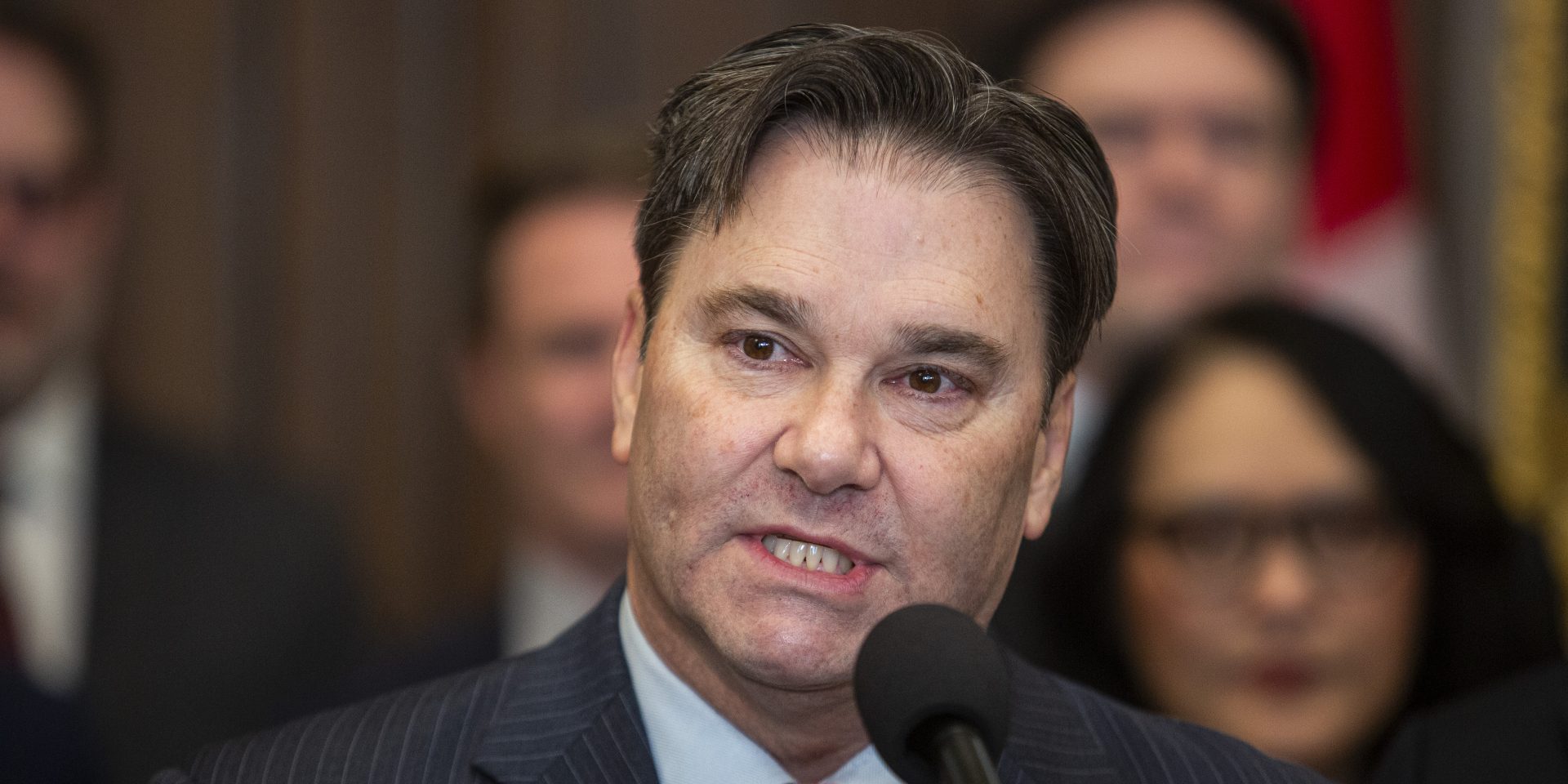
The New Democratic Party is facing a new reality on the Hill as it returns with fewer parliamentary privileges following the worst electoral defeat in the party’s history, but interim leader Don Davies and NDP MP Leah Gazan say they will play an important role “no matter what,” and make their mark “whether [they’re] on committees or not.”
Being a recognized party in the House of Commons requires a minimum of 12 seats, which grants MPs guaranteed seats on committees where bills are reviewed before passing through to the Senate; a right to ask more frequent questions in Question Period; and financial resources used to fund party research, which are allocated by the House Board of Internal Economy. The NDP only has seven seats.
Davies (Vancouver Kingsway, B.C.) told The Hill Times that in spite of his party’s losing two-thirds of its seats—and status—the seven remaining MPs are poised to play a key role in Parliament, and remain “an official party.”
“This is a minority Parliament,” Davies said. “The government has 169 votes. You need 172. And we have seven. So, it’s very conceivable that on a particular issue, whether the government survives or falls, will depend on us.”
The recent federal election—which granted the Liberals their third consecutive minority government, but this time under the new leadership of first-time MP and Prime Minister Mark Carney (Nepean, Ont.)—shrank the NDP’s caucus to the smallest number in the party’s 64-year history. The party is a fraction of the 24 members at Parliament’s dissolution after 13 incumbents lost their re-election bids, including former NDP leader Jagmeet Singh, who came a distant in third in Burnaby Central, B.C., behind new Liberal MP Wade Chang.
NDP MP Leah Gazan (Winnipeg Centre, Man.) noted there has been a “shift” since returning to the House with such a reduced caucus, but said that “regardless of whether [they’re] on committees or not … the New Democrats know how to get things done.”
“I have no problem working hard,” Gazan told The Hill Times. “I was a single mom. … I was at times in my life working three jobs—something that no person should have to do. I have no aversion to working hard and getting things done for the people in my riding of Winnipeg Centre.”
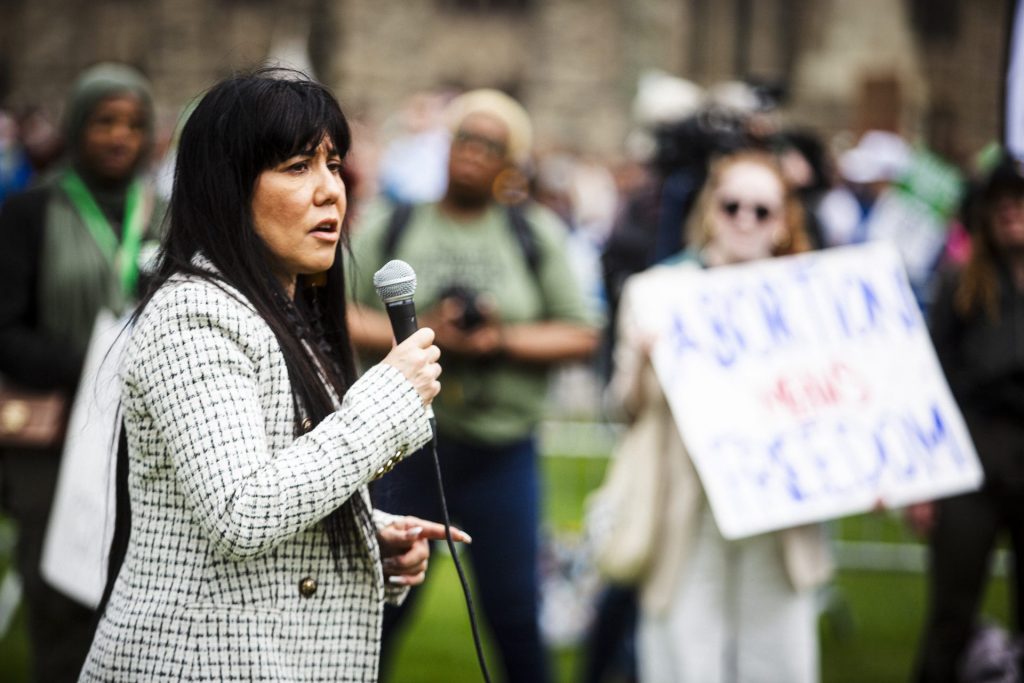
Former NDP MP Matthew Dubé said the caucus is in for “a huge challenge” this session as the party will be missing “a lot of resources,” which will make it difficult to have influence on the key issues for them and their stakeholders.
“From a communications perspective … getting limited time in Question Period, not being able to go to committees—I recognize that there’s a lot of people in the public that aren’t paying attention to that day-to-day—but … it comes down to staunch supporters, stakeholders,” he said. “There’s a whole set of groups for whom that stuff is very important.”
NDP to push for more resources despite status loss
The concept of recognized party status, which is unique to Canada’s Westminster system, comes from a 1963 amendment to the Parliament of Canada Act. The amendment states that an MP “who is the leader of a party that has a recognized membership of 12 or more persons in the House” is entitled to “additional annual allowances.” It makes no mention of committee seats or Question Period time—that comes down to practice and to the House Speaker’s discretion.
The Speaker dictates the right to questions asked in Question Period, but much of that dictation is based on tradition and practice. In an email statement to The Hill Times, a representative from the Speaker’s Office said that there is a “general principle” that “independent members are entitled to their approximate mathematical proportion of questions,” noting that the determination is ultimately up to the Speaker, and could change.
The current Speaker, Francis Scarpaleggia (Lac-Saint-Louis, Que.)—a Liberal MP who was elected to the role on May 27—has determined that the NDP will be allowed to ask seven questions per sitting week—which, evenly distributed, means only one question per Question Period, therefore sticking to the traditional practice.
Davies said he was “pleased” to be given a minimum of one question, saying it allows the New Democrats “to have a voice in Question Period every single day on the issue of the day.”
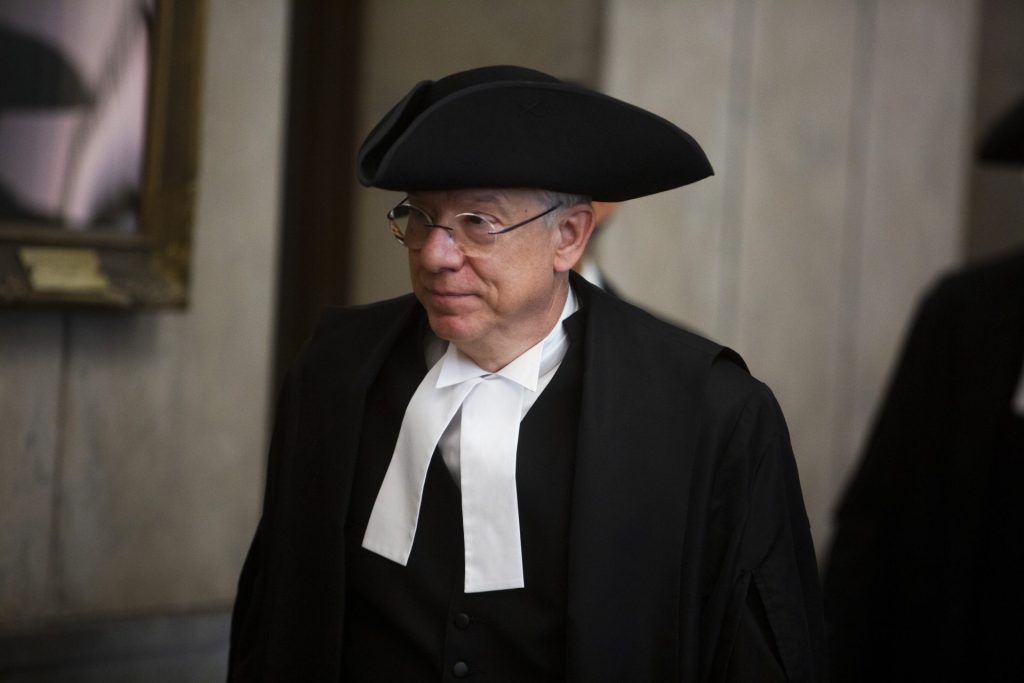
Though it is the Speaker’s authority that determines the questions granted, there is no Standing Order that explicitly dictates that MPs who ask questions at a certain frequency must be from a party with recognized status.
Similarly, there are no Standing Orders which dictate that committee seats must be held by parties with status in the House. However, recognized parties inherently control the process of assigning membership, as only whips of such parties may submit membership candidates, so parties with official party status would need to agree to seat NDP MPs on committees.
Davies said New Democrats are requesting a grant of funds from the powerful House Board of Internal Economy in light of losing their recognized status to hire legislative, research, and communication staff, so the party can “meaningfully participate,” and “understand what’s happening on a day-to-day basis in Parliament and respond appropriately.”
“We’re not just one seat here,” Davies said. “We are seven independent offices, and the ability for us to co-ordinate, especially when the results of our votes may cause a government to fall, makes it critical that we be able to follow the very fast-paced, ever-changing legislative agenda that’s happening in the House of Commons.”
Davies added that the NDP “are going to do our job no matter what”—regardless of additional resources—but said that he has been having “fruitful” discussions with other parties from the beginning, and that there has been a “maturing in the parties’ understanding” following six years of minority governments.
“This is the third consecutive minority [government],” Davies said. “There’s an enormous amount of collaboration and information sharing and co-operation that happens all the time, and all four parties know that, and all four parties benefit from it at one point or another. … When we have discussions with each other about making sure that we have some minimal baseline resources to participate meaningfully, that’s understood.”
But Bloc Québécois Leader Yves-François Blanchet (Beloeil—Chambly, Que.) has made it clear that the Bloc does not want the NDP to sit on committees. In a press scrum on May 27, Blanchet said “it’s our balance of power and we will protect it quite seriously.”
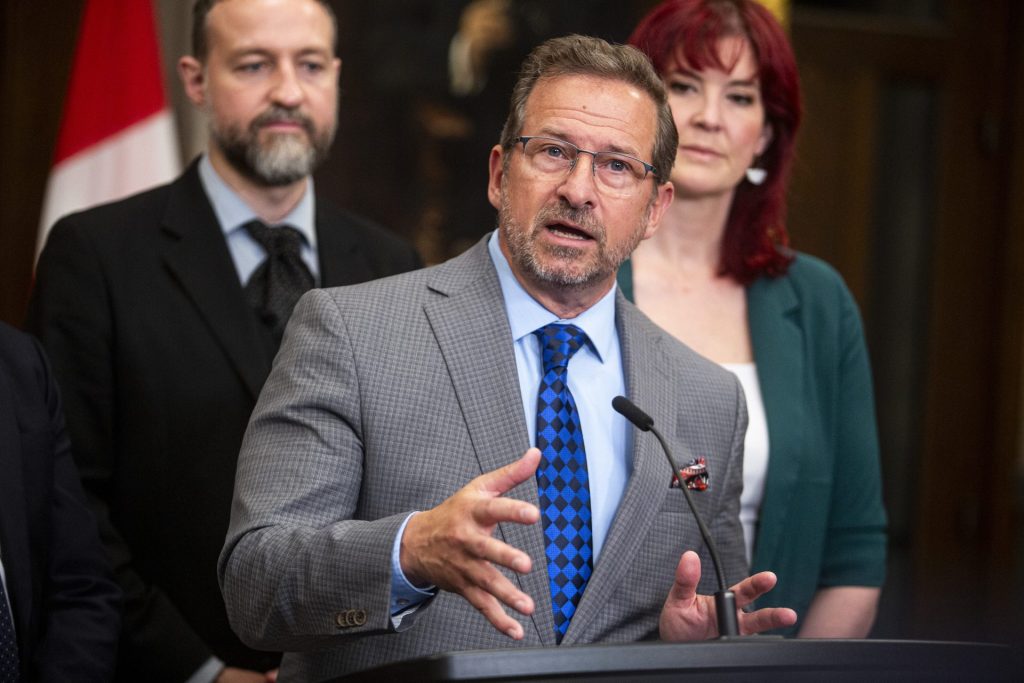
He added that while “there might be conversations about the resources that might be devoted to them … we have to say, ‘okay, what … do you want, and what’s in it for the rest of us?”
Dubé called Blanchet’s assessment “a bit rich,” emphasizing, like Davies, that the Liberal government is only three seats short of a majority, which makes the seven NDP MPs “more than enough” to sway House votes, noting that the Liberals don’t need the Bloc’s full caucus to secure a majority.
Concept of House recognized party is ‘anti-democratic’: Elizabeth May
Green Party Leader Elizabeth May (Saanich—Gulf Islands, B.C.) has long operated in the House of Commons without her party being officially recognized, ever since she was first elected in 2011. She called the “whole concept” of party status in the House “appalling and anti-democratic,” repeating calls for it to be repealed.
May also emphasized that there is no rule or law dictating that an Independent MP—or an MP from a party without status—cannot sit on committees or ask questions in Question Period. She urged MPs to drop the “bad habits” of restricting questions and committee membership, and to “follow our rules.”
“There is no justification for treating the NDP members or me as less than the equals of every other MP in the House,” May told The Hill Times. “We are all equal. … Just the way … every district within the country is equal to any other district. There’s no justification whatsoever in saying we don’t have the same rights to speak in Question Period, that we don’t have the same rights to sit on committees.”
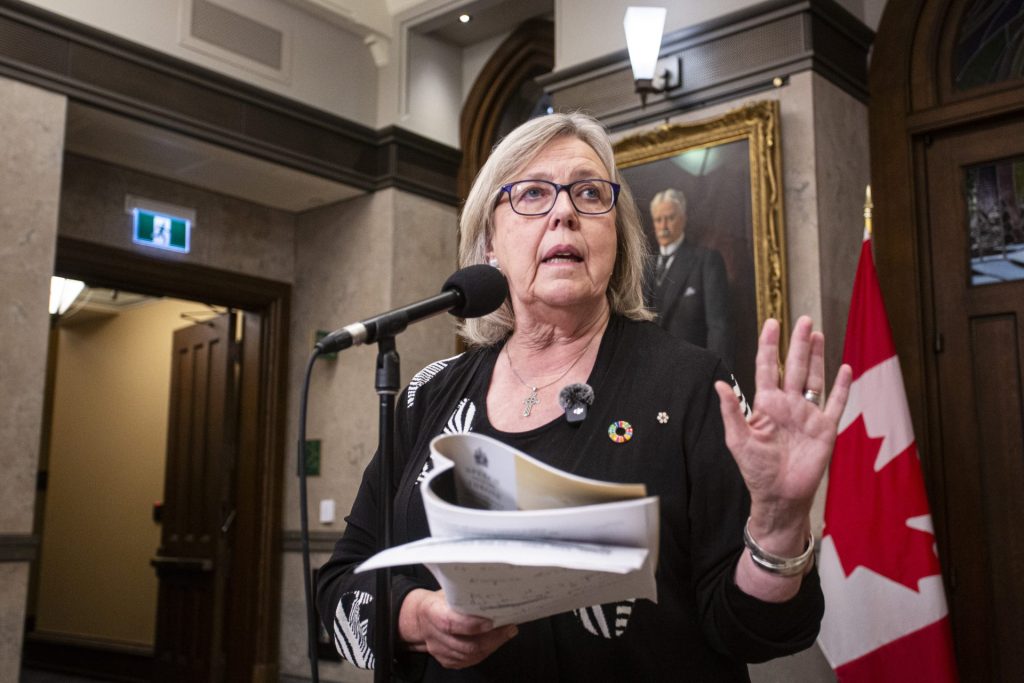
When asked about May’s assessment, Gazan said, “we need to go beyond that,” pointing to the need for electoral reform, something for which May has also advocated.
“We need to move towards proportional representation,” Gazan said. “So that people can vote for who they want and not fall prey to the misinformation that’s touted in strategic voting.”
Strategic voting was a major contributor to the NDP’s downfall this election. A number of NDP strongholds bled key support to the Liberals, with many voters under the impression a Liberal vote was the ticket to preventing the Conservatives from forming government. In some cases, this led to Conservative MPs being elected in historically NDP ridings due to a split progressive vote.
But May said she will continue to fight against the concept of recognized party status.
“I’ve been trying non-stop since 2011, and I will not stop trying,” she said. “For Parliament to work, we need those NDP MPs sitting on committees because they’re experienced, knowledgeable, strong parliamentarians.”
“They have a right to be full—as I do—to be a full member of any committee.”
ewand@hilltimes.com
The Hill Times






 LICENSING
LICENSING PODCAST
PODCAST ALERTS
ALERTS













